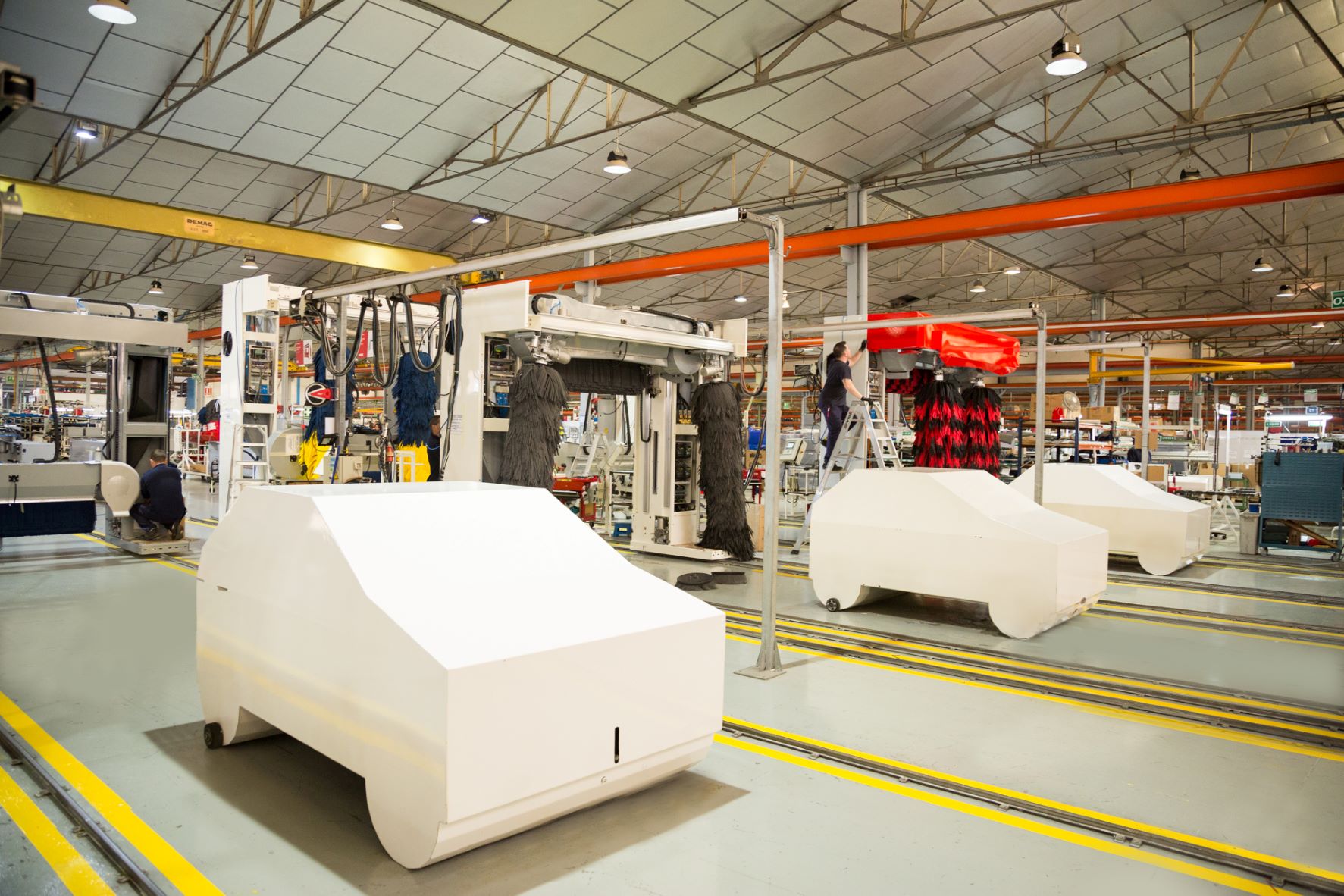ISTOBAL, the leading Spanish group in vehicle wash and care solutions, maintains its delivery deadlines in 2022 despite the tensions in the supply chain thanks to the measures adopted in advance at its production plants. production, warehouses and production planning.
 Istobal
Istobal ISTOBAL, the leading Spanish group in vehicle wash and care solutions, maintains its delivery deadlines in 2022 despite the tensions in the supply chain thanks to the measures adopted in advance at its production plants. production, warehouses and production planning.
The digital transformation of ISTOBAL’s operations, together with the coordination of all its departments and the continuous improvement of its processes, has allowed the company to increase its agility and flexibility. This way, ISTOBAL manages all its resources more efficiently and guarantees customer service, despite the scarcity and increase in the cost of materials, the increase in logistics and freight costs, the difficulties in international transport, among other problems of Supply Chain.
Mª José Ramón, Director of Operations of ISTOBAL, has highlighted that the adoption of new strategies that permeate the entire value chain such as the implementation of crisis rooms or “war rooms”, the deployment of the S&OP (Sales and Operations Planning) process, in addition to the continuous improvement of processes and systems, has allowed the company to face the crisis in the supply chain and offer the best solution to its customers.
“Thanks to the actions carried out with our teams, we achieved production records in November and December of last year and broke container export records, despite the difficult situation of the ports and the crisis of lack of components and containers”- has underlined Mª José Ramón.
New strategies for an agile and flexible supply chain
ISTOBAL’s strategic plan to deal with difficulties in the supply chain is based on three methodologies that promote agility and the level of competitiveness in the current context to guarantee the continuity of production, distribution, and customer satisfaction. client.
Faced with the supply crisis, ISTOBAL has activated several crisis and monitoring rooms, focused on the visualization and management of real-time supply data and supplier management, made up of a multidisciplinary work team for quick decision-making and coordinated.
Likewise, it has promoted a single operational model with all its subsidiaries and has enabled a specialized logistics team to manage transport, in addition to promoting transversal communication throughout the value chain, from the supplier to the customer.
One of the initiatives carried out has been the elimination of external warehouses, integrating all this material in the ISTOBAL facilities with a double objective, to reduce manufacturing lead time and improve internal logistics. In order to launch this project, important changes have been made to the layout in the production plant, which have not at any time affected production at the company’s headquarters or affected any order.
Additionally, ISTOBAL has launched various processes at the level of stock management to maintain the same level of service for its customers under current conditions.
In the opinion of Mª José Ramón, communication, coordination and synchronization of teams and processes in an agile manner, which affect the entire value chain, have been the keys to success.
Thanks to the flexibility of production lines and adaptation to the complexities of the supply chain, ISTOBAL has managed to increase its degree of efficiency, improving quality indicators, delivery times and customer satisfaction, becoming a company with ratios of first level with robust, automated and digitized processes.
In recent months, not only have production and export records been achieved while maintaining delivery deadlines, but thanks to the focus on continuous improvement, ISTOBAL has managed to exceed its best results in the main operational management indicators. Thus, the results obtained in the internal efficiency indicators of the production chain have been increased by up to 30%, reducing by more than 50% the quality incidents detected in regular controls thanks to the numerous improvements implemented in products and processes, and with the best full compliance with deliveries achieved to date.



